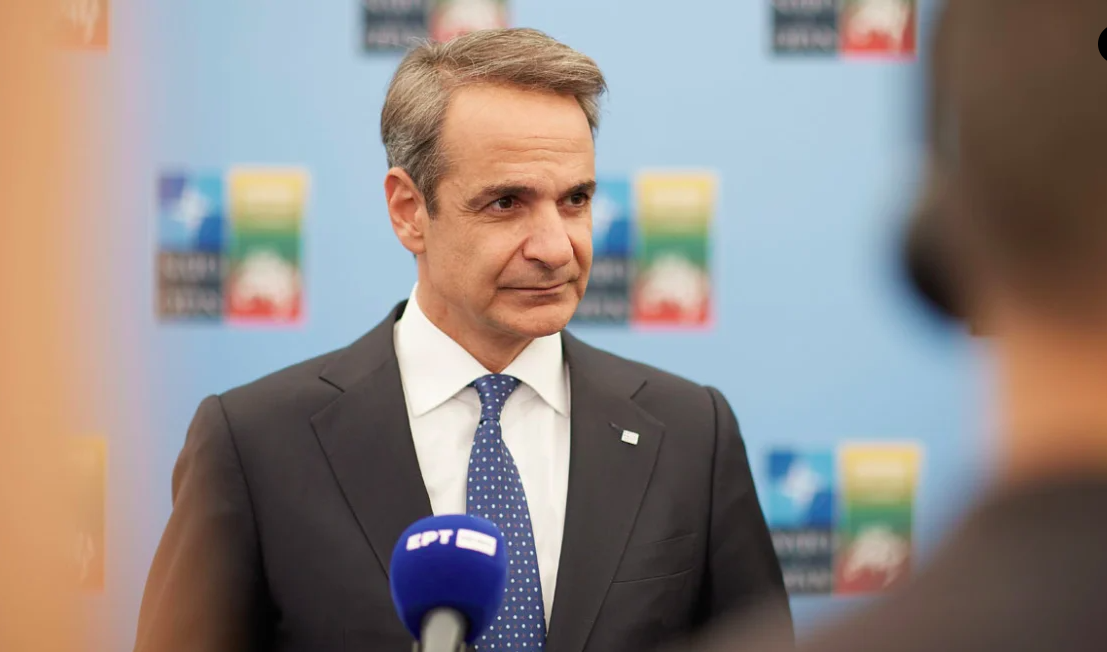NATO’s 75th Anniversary Summit
NATO will celebrate its 75th anniversary this week with a summit in Washington at a critical geopolitical moment. The ongoing war in Ukraine is not progressing as planned, the Middle East is in turmoil, and the potential return of Donald Trump to the White House seems increasingly plausible following Biden’s poor performance in the CNN debate.
Greek Prime Minister Kyriakos Mitsotakis, heading to the US capital today, will participate in discussions on the future of the Alliance. Greece, a key contributor to defense spending (at least 2% of GDP), holds a privileged position at the discussion table. Notably, Mitsotakis, along with his Polish counterpart Donald Tusk, has proposed a European air defense shield funded by European resources, which would complement NATO. This initiative underscores Mitsotakis’ push for Europe’s strategic independence, a critical issue, especially with the prospect of Trump’s return.
Greek-Turkish Relations: Calm Waters, No Bilateral Meeting
Mitsotakis will not hold a bilateral meeting with Turkish President Recep Tayyip Erdogan, following their recent conversation at the White Palace in Ankara, where Mitsotakis was invited after Easter. Although the two leaders will attend the summit and the leaders’ dinner hosted by President Biden, it will be Erdogan’s first visit to the White House under Biden, despite his efforts to secure an invitation. There might be some contact, possibly a handshake, but regular summit-level meetings are not expected. For instance, today in Athens, Turkish Fleet Commander Kadir Yildiz will meet Greek Fleet Commander Polychronis Koulouris as part of discussions on Memoranda of Understanding.
Despite earlier expectations, a bilateral meeting between Greek Foreign Minister Giorgos Gerapetritis and Turkish Foreign Minister Hakan Fidan is not anticipated. Officially, there is no scheduled meeting, although incidental discussions may occur as is common in such forums.
The next planned Greek-Turkish meeting is set for September in New York, on the sidelines of the UN General Assembly. Currently, the goal is to maintain calm and progress on less contentious issues.
Message to Skopje
The NATO Summit will mark the first meeting between Mitsotakis and the new Prime Minister of North Macedonia, Christian Mickoski. Relations between Athens and Skopje are tense due to revisionist statements from President Siljanovska and Mickoski, and maneuvers to bypass the erga omnes designation. It’s unlikely Mitsotakis and Mickoski will even exchange a handshake. However, the main issue is the expected clear message from NATO to Skopje’s government to stop playing games, though it’s uncertain if this will be taken seriously. Athens has communicated its position to key allies, and there is a consensus on the situation.
Appointments in Washington
Beyond the official NATO program, Mitsotakis will meet with members of Congress and has been invited to speak at the Council on Foreign Relations. On Tuesday, he will discuss with former US ambassador to Athens, Daniel Speckhardt. On Wednesday, he will participate in the NATO Public Forum with former US Deputy National Security Adviser Nadia Schadlow. After the summit, Mitsotakis will travel to New York to meet UN Secretary-General Antonio Guterres, focusing on Greece’s Security Council term and the Cyprus issue.
Foreign Minister Giorgos Gerapetritis, accompanying Mitsotakis, will attend an event hosted by US Secretary of State Antony Blinken on security and the role of women. On Wednesday, he will attend a dinner by Blinken at the Library of Congress.
The Orban Factor
Notably, during these discussions in Washington, the Orban factor remains a significant consideration in the broader geopolitical and strategic landscape.
Ask me anything
Explore related questions





